4 challenges facing farm businesses and how to overcome them
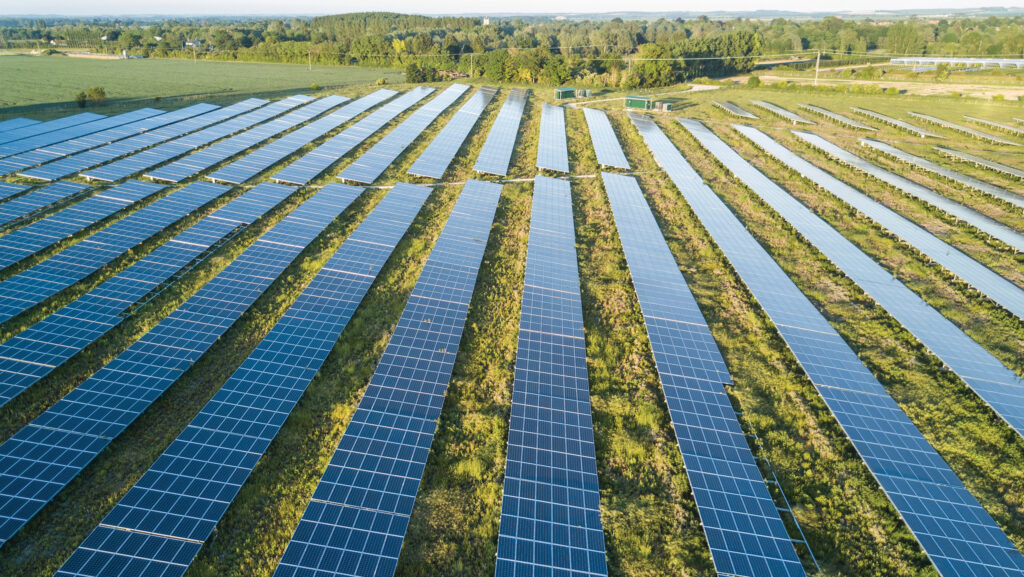 © Adobe Stock
© Adobe Stock More farmers are thinking “beyond the farm gate” to ride out a series of challenges facing the sector and secure a future for their businesses.
Growers and livestock producers say they are reaping the rewards from forging stronger relationships across the supply chain – to overcome rising input costs, labour shortages and market uncertainty.
Farmers working more closely with suppliers say they gain better access to technical advice, innovation and purchasing efficiencies.
See also: Putting in place the right company structure for farm businesses
Meanwhile, closer ties with processors, retailers and end consumers are ensuring more stable returns.
Producers say these partnerships are strengthening business resilience, enabling them to respond faster to market opportunities, and, ultimately, improving their profitability in a changing marketplace.
Potential solutions
Farmers able to meet additional criteria – including higher-level assurance schemes, regenerative farming practices or provenance storytelling – find themselves well-placed to access premium markets.
This might involve targeting higher-income consumers through farm branding, regional identity, or direct sales.
Others are finding success by adding value – processing their own produce, developing branded products or innovating with new offerings.
Building closer relationships with processors, retailers and suppliers is also proving a key way for farmers to secure more stable and transparent pricing, access to reliable markets, and early signals on changing consumer demand.
During the coming year, Farmers Weekly Transition will be focusing on all this and more.
The four key challenges facing producers are:
- Policy pressure
- Geopolitics
- The marketplace
- Environment.
Here, we take a closer look at these challenges, and suggest how these challenges might be overcome through our farmer case studies.
1. Policy pressure
Labour’s landslide victory in last year’s general election heralded a marked change in Defra’s policies and has become apparent that producers can no longer rely on government support for profitability.
For farmers in England, the past 12 months have seen:
- Rapid withdrawal of the Basic Payment Scheme (BPS)
- Inheritance tax (IHT) imposed on farm assets worth more than £1m
- Closure of the Sustainable Farming Incentive (SFI) to new applicants
- Withdrawal – and then reopening – of capital grants.
This reflects a broader fiscal and political context. With public finances under strain, agriculture must increasingly justify why it should be prioritised over other sectors.
In this climate, support can no longer be taken for granted.
Transition Farmer: Ed Shuldham
JM Stratton, East Farm, Codford, Wiltshire
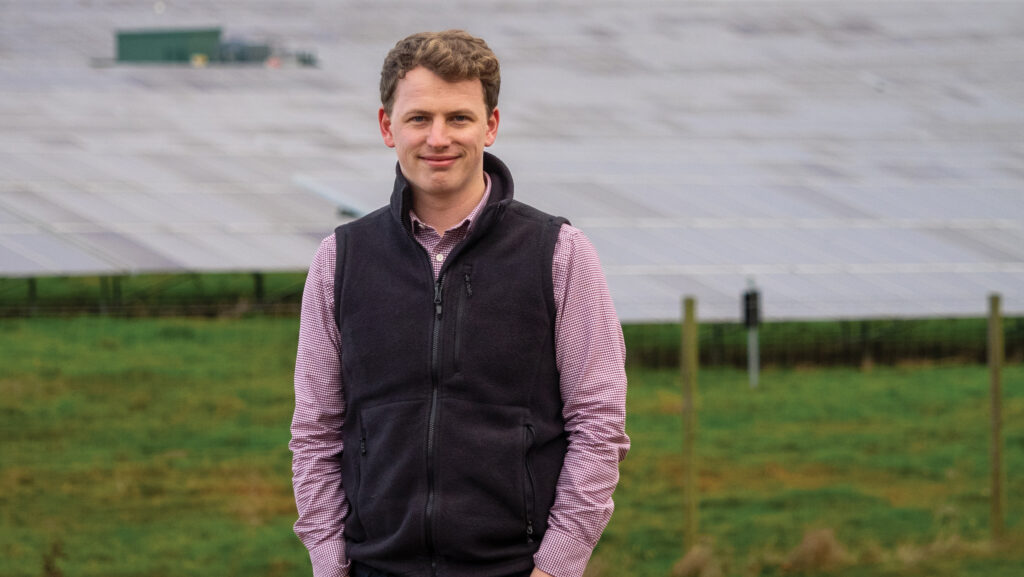
Ed Shuldham © Kathy Horniblow
Collaboration with other farms is providing landscape scale to generate revenue streams and create a louder voice to influence UK policy, according to East Farm’s business development manager Ed Shuldham.
The farm is part of two collaborative initiatives with neighbouring producers.
One is a farm cluster, Wylye Valley Farmers, which acts as a not-for-profit, social and community exercise to demonstrate and share ideas on environmental issues and sustainable farming.
The second initiative is the Environmental Farmers Group (EFG). It is also a collaboration and was set up with local farms to trade natural capital assets at a landscape scale.
The group has 541 members covering more than 340,00ha, and this scale offers farmers more clout when negotiating and trading natural capital services.
“Private purchasers want to see the biggest benefits achieved for their input and this means working at landscape scale,” says Ed.
“We work together as a professional team to negotiate with buyers and set a price for our assets that accurately reflects their worth.”
The aim is to become a trusted supplier of quality natural assets for public and private bodies such as the UK’s water companies, developers and corporate organisations.
“Another benefit of the EFG’s scale is we get a seat at the policymakers’ tables.
“We have been involved at a high level of government, and our experience and opinions are being listened to by senior officials,” he says.
Transition Farmer Alan Steven
Hillhead Farm, Kingsbarns, Fife
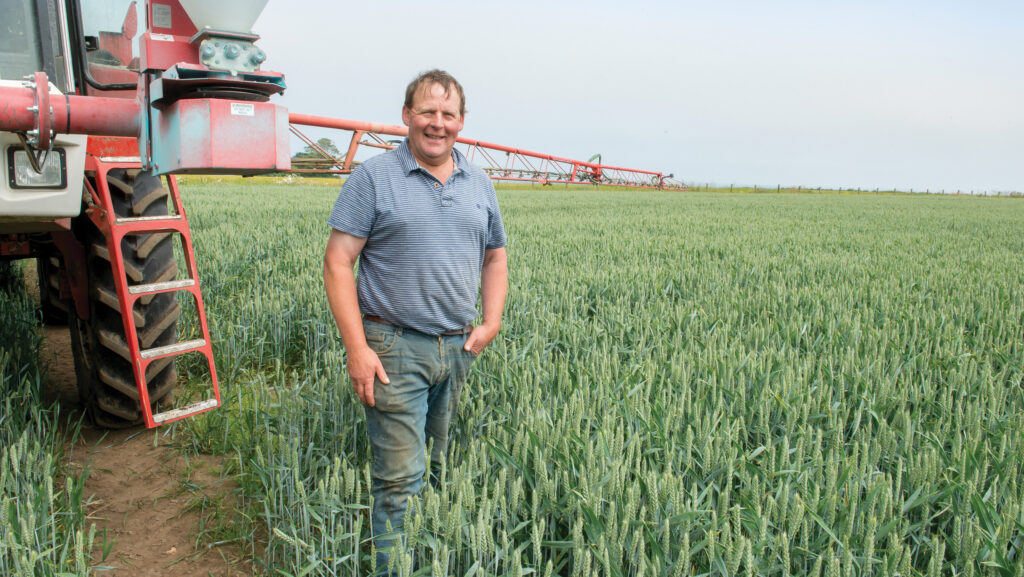
Alan Steven © Angus Finlay
Arable grower Alan Steven produces potatoes and malting barley with ever-closer ties to buyers far beyond the farmgate to maintain market value.
Net zero is more immediate for maltsters who are processing barley for whisky that will be sold in 12 years’ time.
To compete with products on shelves in 2037, whisky must hit net-zero targets as soon as possible.
Alan sells his barley to Simpsons Malt, which is addressing carbon emissions with a switch to green nitrogen by means of a tie up between Simpsons and fertiliser manufacturer Yara.
The energy-intensive processing of fertiliser has traditionally relied on fossil fuel.
But Yara has switched to renewable energy, significantly cutting the carbon footprint at Hillhead, and so benefiting the whole supply chain.
Even closer customer ties have been established on the potato-growing enterprise.
Alan supplies 400t of ware and 200t of seed mostly to processor McCain, which supports its 250 UK growers with agronomy, including recommendations on spray applications.
It also promotes the use of cover crops and sustainable agriculture with lower nitrogen use to achieve its aim of having 100% of its growers using regen systems.
To support its growers financially, McCain operates an upfront payment system.
The payment made in July is worth about 50-60% of the crop value to cover the growing costs for seed, fertiliser and pesticides.
The remainder is paid once the harvest has been completed.
2. Geopolitics
At a broader level, political change across Europe, the US and further afield is posing further challenges for UK farmers.
The geopolitical landscape is directly impacting trade, supply chains, regulation and investment in agriculture.
Donald Trump’s second term as US president has already affected UK wheat growers reliant on domestic bioethanol production, by putting a floor in the cereal market, with tariff-free ethanol imports now heading for these shores.
UK trade deals with countries such as Australia threaten to have a similar impact on British beef producers, with less predictable trade policies affecting overseas market access for UK agricultural exports.
Ongoing conflict in Ukraine and the Middle East continues to unsettle global grain and oil markets, underlining UK farmers’ exposure to geopolitical shocks.
Meanwhile, the global consensus on environmental targets is weakening.
Politicians and farm leaders are increasingly questioning the validity of net-zero policies, while the EU is easing corporate sustainability reporting through the “Omnibus Directive”.
In the US, a more fossil fuel-friendly approach is gaining ground.
However, for UK farmers, this raises key concerns – whether future regulations will remain aligned with net-zero ambitions, whether green farming schemes will stay funded, and how to respond to diverging consumer and investor expectations.
Transition Farmer Eddie Andrew
Cliffe House Farm, Sheffield, South Yorkshire
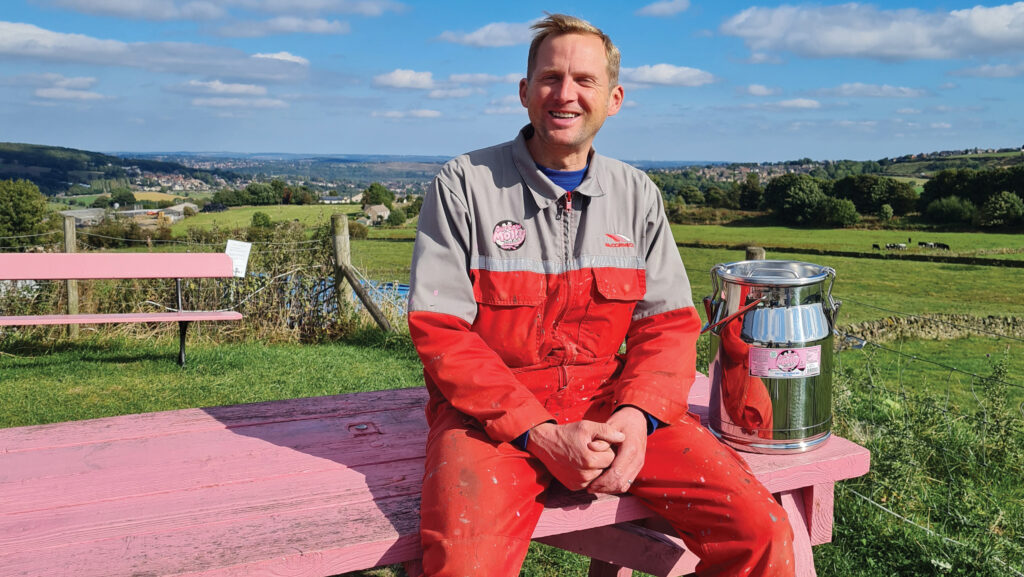
Eddie Andrew © Our Cow Molly
The recent energy crisis was the catalyst for Eddie Andrew to rethink his reliance on retail power suppliers.
Volatile energy prices, driven by global political upheaval and conflicts in Ukraine and the Middle East, saw Eddie’s electricity bill rise by more than 15%.
The rise translated into an extra £4,000/month added to the bottom line of his electricity bill.
“We couldn’t work with rises like that, so looked for a way to protect the business from this outside influence.
“We needed to isolate ourselves and move off-grid and to be free of fossil fuel use within five years,” says Eddie.
The farm is moving into electricity generation using roof-mounted solar panels and two wind turbines. Combined, the output will be 3MW – more than double the farm’s needs.
The excess will power a unit that will change methane into green hydrogen, and be used to supply nearby Sheffield Council for its expanding bus fleet.
The Our Sheffield Farm project is being delivered by Sheffield-based social enterprise SY Ecofit, which will design, install and operate the farm infrastructure.
A pioneering approach to funding the electricity-generating business has also been taken.
The farm’s 1,300 doorstep milk round customers have been approached to invest in the electricity generation equipment.
“Customers of the milk delivery business will then become our energy suppliers rather than a mainstream retail, insulating us from the volatile prices on a global market,” explains Eddie.
Ellie Lovell
Tack Farm, Bromyard, Herefordshire

Ellie Lovell © Richard Stanton
Dairy farmer Ellie Lovell is securing increased revenue by working more closely with the supply chain.
Milk from the 800-head dairy herd is sold to Arla, and Ellie has embraced the aims of the processor’s FarmAhead rewards programme, which pays an extra 0.03 euro cents for every kilo of milk produced.
“It sounds like a small amount, but there are 19 option areas and when they are multiplied by the milk output, it adds up to a significant incentive,” says Ellie.
The main options for rewards points are those with the biggest benefits on reducing emissions and improving biodiversity: feed efficiency, fertiliser use, land management, protein efficiency and animal robustness.
Ellie has chosen to remove soya from the ration as part of the feed efficiency option.
Other options taken up include soil health measures, such as sampling, nutrient management through reduced artificial fertiliser use and continuous plant cover.
She has also installed solar panels to achieve points for renewable energy use.
Further points are added for attending knowledge exchange events and training throughout the year.
The impact of the work at Tack Farm goes far beyond the farmgate to Arla’s retail and food service customers.
Many of Arla’s customers have to provide information of emissions caused by their supply base under new rules.
It means Ellie’s work to reduce the carbon output on a recognised scheme has become valuable information for the corporations, and that makes Tack Farm a crucial link in the supply chain.
3. The marketplace
Market pressure continues to intensify as farmers are asked to produce more with fewer resources and tighter margins.
Consumers remain highly price sensitive, particularly in the face of inflation and broader economic uncertainty. Yet expectations have not fallen.
Shoppers still demand high-quality food, but increasingly they also expect high standards of animal welfare, environmental care, and sustainability as standard.
This presents a dilemma. While high standards can incur real on-farm costs – from changes in livestock housing, feed, inputs or record-keeping – many consumers are reluctant to pay more for them.
Instead, they view such attributes as non-negotiable. But that doesn’t necessarily mean lower margins for farmers with niche markets continuing to offer potential for those producers willing to differentiate.
Transition Farmer Matthew Williams
Criddon Hall, Bridgnorth, Shropshire
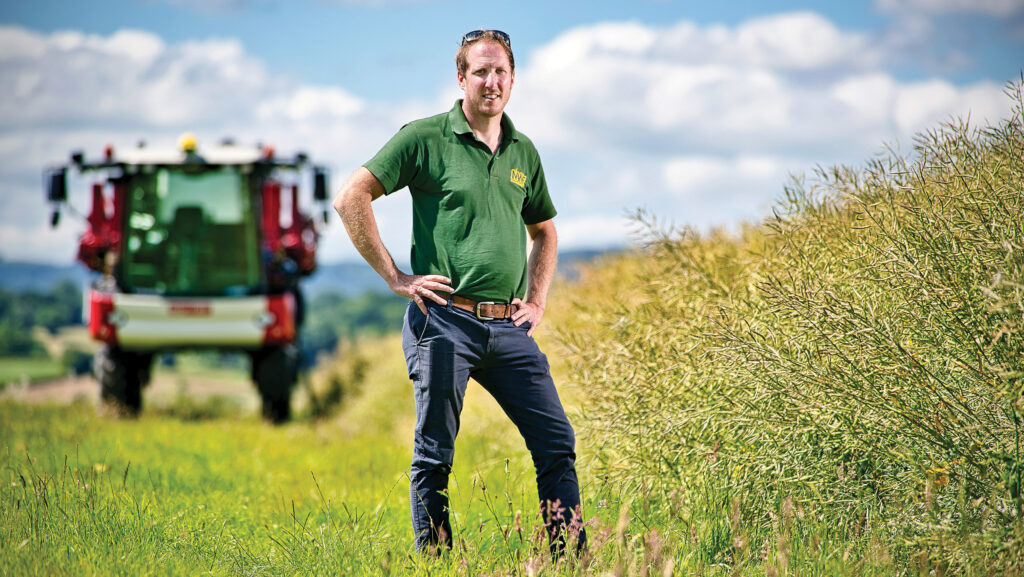
Matthew Williams © Richard Stanton
Matthew started working with Wildfarmed low-input grain traders and campaigners for environmental farming practices in 2024.
It also connects the entire supply chain – farmers, millers, bakers, and consumers – by marketing crops grown under its system.
Matthew drilled 52ha of spring wheat under a contract that stipulated tight limits on N through the season – no insecticide, no fungicide and no herbicide applications.
As a result, input costs were only £50/ha and the crop proved to be as profitable as the conventionally grown wheat.
This season, Matthew has extended the contracted area to cover 20% of his 1,250ha and has direct-drilled spring oats into beans.
He has also grown a trial area of winter wheat. The crop was treated with herbicides at an early stage.
Testing has shown there were no residues left in the crop long before harvest, so Wildfarmed is considering permitting this approach.
This close relationship will help farmers grow the crop by tackling an otherwise potentially unworkable ryegrass and brome burden and increase Wildfarmed’s tonnage of wheat within its portfolio.
Matthew has attended meetings organised by Wildfarmed to introduce grain buyers to the farmers.
“It is a new experience to put faces and names to the people who buy our produce,” he says.
“We are gaining a better understanding of what they want, but we are also able to discuss the important issues we face and we are all moving forward together.”
Andy Gray
Elston Farm, Copplestone, Devon
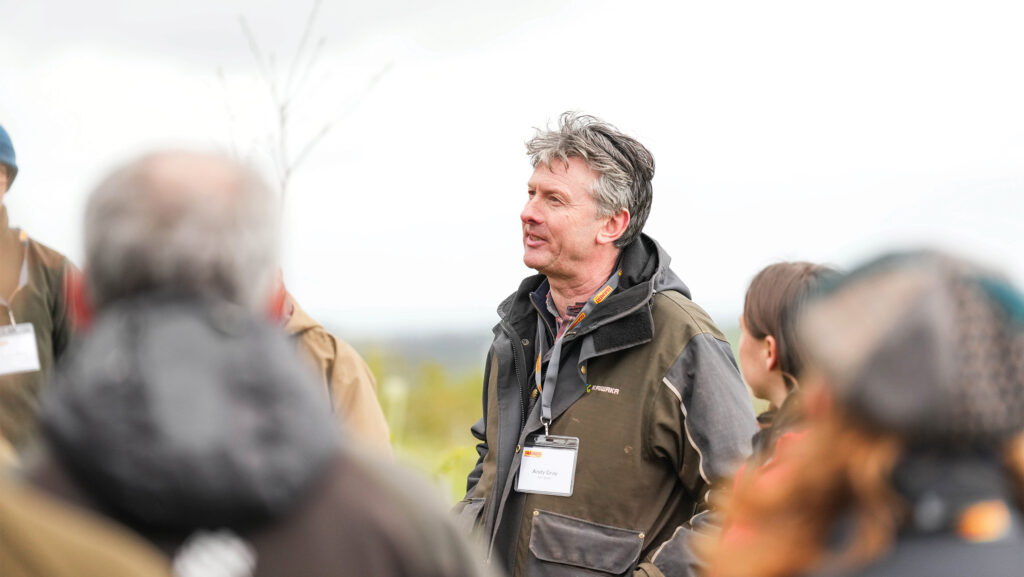
Andy Gray © Emily Fleur
Andy has cut out the middleman, not just for his own livestock business but for customer farmers around him, by creating two outlets: The Meat Box Company and MC Kelly.
Andy direct-sells his beef and venison online through The Meat Box company, while MC Kelly supplies lamb, beef and pork to 450 hotels and restaurants across Devon and Cornwall.
To supply the growing customer base of both outlets, he takes in livestock from three selected farms nearby.
He has developed an on-farm slaughter line for sheep, with a cattle line at the planning stage, while pigmeat is supplied from Cornish Farmhouse Bacon.
The short supply chains of all the initiatives mean more of a share of the margins for his own business and those of his local supplier base.
It also keeps livestock transport to an absolute minimum, cutting the business’s carbon footprint.
Those elements give the business a strong selling point.
Restaurants and retailers are able to say where meat has been grown and demand is growing for produce with traceability and a local story.
Andy says cutting out the middleman has put a higher degree of resilience into the business portfolio.
MC Kelly is still expanding and business has already grown from 12 to 80 workers with a turnover of £7.5m/year.
4. Environment
At the same time as the market and political upheaval have hit farming, increasingly unpredictable and frequent extreme weather events are making it harder for farmers to remain profitable – eroding margins, increasing costs, and disrupting long-established rotations.
The 2023-24 season saw one of the wettest winters on record, limiting arable cropping.
In contrast, the previous summer saw extended dry spells, reduced grass growth and poor forage yields.
This season has been different again. All this poses business risks way beyond yields.
Disrupted harvest windows impact labour efficiency, while delayed drilling compresses workloads. Meanwhile, livestock producers face feed shortages and higher input costs.
Across the board, insurance, drainage, and infrastructure costs are rising – prompting forward-looking farmers to improve soil management, invest in better drainage, diversify their cropping and use weather modelling to build resilience.
Ultimately, environmental management is now a core part of running a viable farm business.
Those who adapt strategically will be better placed to protect productivity and profitability in a more uncertain future.
Richard Bramley
Manor Farm, Kelfield, North Yorkshire
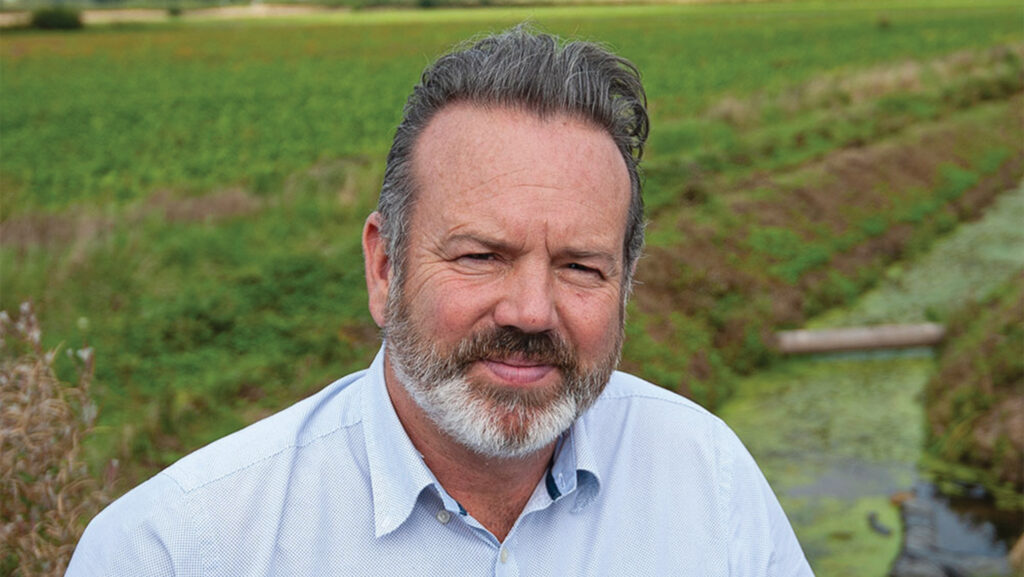
Richard Bramley © Supplied by Richard Bramley
Arable grower Richard Bramley’s family are in the 90th year at Manor Farm.
But the past five years have arguably raised the biggest challenge across all of those decades, says Richard.
It is now three years in succession where growing conditions have been difficult.
The extreme climate has come in combination with turmoil in markets and global politics caused by the Covid pandemic, conflict and Brexit.
“Climate resilience is largely about soil health, and we have been working on it for the past 20 years.
“We have been cover cropping since 2007, to protect the nutrient value of the soil and provide a temporary wildlife habitat over winter,” Richard says.
The farm’s environmental approach has been supported by government schemes.
Richard was an early adopter of the environmental philosophy, joining the Entry Level Stewardship in 2005, taking part in the Sustainable Farming Incentive (SFI) pilot, and signing up to the full scheme from the outset.
But the SFI payment income amounts to just 40% of the income from previous support schemes.
No longer able to rely on the government, the business has forged links with private bodies.
One of the farm’s customers, potato processor Walkers, subsidises the farm’s cover crop seed and a CCm Technologies’ fertiliser pellet derived from anaerobic digester waste.
Both of these boost soil organic carbon and help the processor achieve its own environmental targets.
Another partner is Yorkshire Water, and Richard has taken part in its Sustainable Landscapes Programme to reduce pollution.
Yorkshire Water works with farmers to help improve soil health and provides a proportion of Manor Farm’s cover crop seed.
He is also part of the Yorkshire Agricultural Society’s Farmer Scientist Network.
The farm has hosted a three-year project on biocontrols for wheat crop pests and has just embarked on soil enhancement trial to build drought resilience and soil nutrients.
Nic and Reno Renison
Cannerheugh Farm, Eden Valley, Cumbria
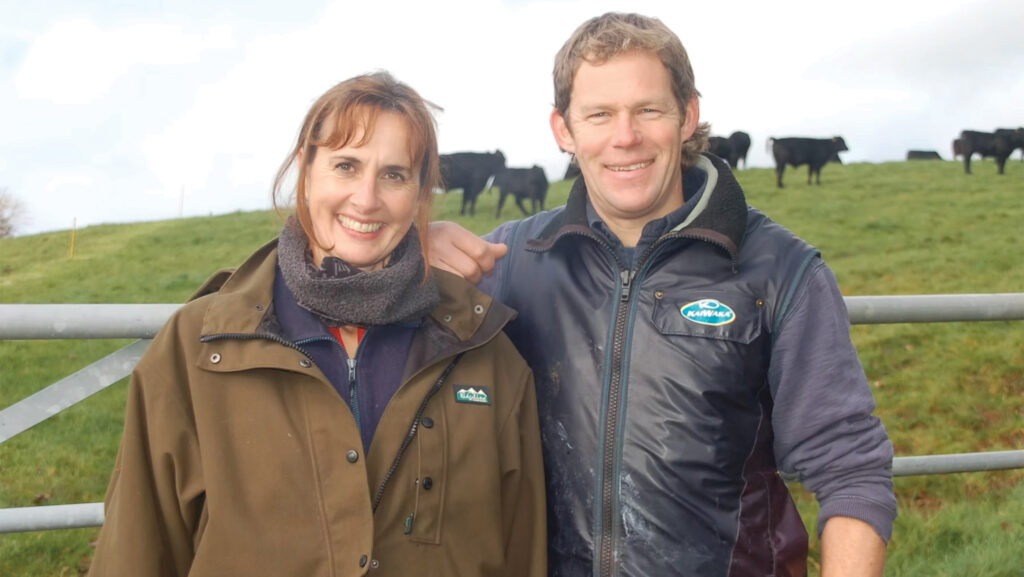
Nic and Reno Renison © Supplied by Renison Farm
Nic and Reno Renison have farmed Cannerheugh since 2012 and promote regenerative farming through an annual conference “Carbon Calling”.
It was set up in partnership with independent livestock consultant Liz Genever.
Now in its fifth year, the event has gained standing on the annual conference circuit with its high-calibre speakers.
Also planned is the development of a meeting room, part-funded by Farming in Protected Landscapes. It will serve as a venue for the conference.
The couple have also set up a direct-selling business with a thriving customer base, and forged links with local outlets for their Aberdeen Angus beef and egg production enterprises.
Initially, the unit produced lamb, but beef cattle better suited the grazing profile and cost structure.
The free-range egg business has added pasture management and cashflow benefits.
The land has been farmed under a regenerative system since 2014 with cattle on rotational grazing.
The free-range hens then follow cattle round and are secured at night in mobile housing units, says Nic.
Margins have been improved by selling cattle to local company Westmorland, which operates the nearby Tebay motorway services on the M6.
Westmorland is also a farm business and takes almost all of the Renisons’ beef as stores for finishing.
The closeness of the business means its carbon footprint benefits from short transport times for the cattle. About one-third of the eggs are also bought by Westmorland.
The short supply chain helps create security for the farm, and fair prices are agreed with a known buyer.
The remaining eggs are sold through a doorstep delivery service.
“Margins here are better than selling to a mainstream packer, and a trusting relationship with the client-base has been formed over the years,” says Nic.
